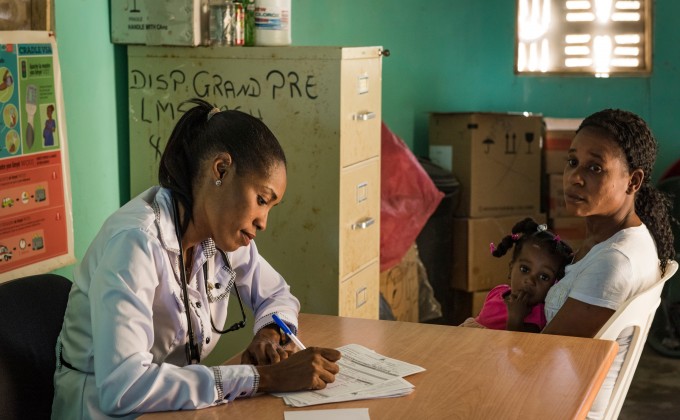
North of Haïti

October 2016 to September 2022

Approximately 535,970 people, representing 51% of the Region’s population.


CAD 11,052,087 (GAC) including CAD 139,800$ from CECI
CAD 1,741,401 (Consortium)

Reinforcement, Improvement, Acceptability
Consistent with Haiti’s national priorities (Master Health Plan 2012–2022 and National Reproductive Health and Family Planning Strategy 2013–2016), the project aims to achieve 3 complimentary objectives:
Integrating Maternal, Neonatal and Child Health (MNCH) Services at the Community Level
The integration of MNCH services at the community level is increasingly recognized as a best practice to improve the health of mothers and children. It makes the most of each consultation opportunity in order to ensure the continued delivery of services, including for obstetrical emergencies. This strategy is anchored in the orderly intervention of service providers and managers from the health sector, the communities and the social sector. This project favours a supportive approach (as opposed to one of substitution), which entails a strong implication from key actors at the regional and local levels in order to achieve the desired outcomes and to ensure the durability of all achievements.
Gender Equality and Human Rights: Key Factors in Improving MNCH
In order for services to be actually used by women and children, sustained efforts around issues of gender equality and rights to health must be conducted with men, women, communities and their leaders. It is now well recognized that the issue of maternal, neonatal and child health is not just one of health care, but of social justice and human rights as well. Consequently, the project integrates strategies and activities to this effect, in Haiti as well as with the Canadian public and scholars.
See the information leaflet (in French)
1,050,922 residents of the Department of the North will see their health care coverage improved
535,970 people have benefited directly from the project
46,957 Canadians reached through outreach and engagement activities
Artéfise Prospère, head nurse at the Bahon Health Center in Haiti, discovered her calling to this field early on. Since 2016, she has been supported by our Appui au Continuum de Santé mère-enfant (ACOSME) project in her practice.
One of the strategic axes of the community mobilization of the project consisted in the implementation of a community participation initiative, called Women Health Service Users Committees (WHSC), in the areas targeted by the project.
The ACOSME project, implemented since 2016, by CECI and the International Health Unit of the University of Montreal, with financial support from the Government of Canada, proposes as a lever for community mobilization the establishment of Women Health Service Users Committees (WHSC). This project seeks to reduce maternal and infant mortality rates by improving the use of health services. These committees are groups of women who act as intermediaries between health institutions and the population. They encourage and educate the population about the health services available to them and allow for equitable and increased access to health care for mothers and newborns in Haiti.